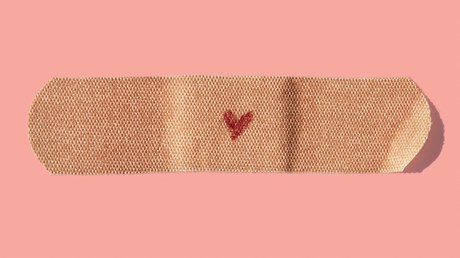For the love, folks.

As I lay in a hospital bed, the doctor and I tried to figure out why red, purple, and blue patches were erupting all over my body. My blood platelet levels were so low, I could have developed spontaneous internal bleeding. ER residents crowded into the room, curious to see my skin. We went down the list of potential causes: a family history of bleeding disorders, recent medication exposures, cancer symptoms, recent infections.
Then I remembered. Three weeks prior, I had received several vaccines to prepare for a medical missions trip. As I endured much testing over the following weeks and years, only one explanation persisted for my immune thrombocytopenic purpura (ITP): A vaccine had tricked my immune system into attacking my own platelets, the parts of blood cells that bind them together.
I know the risks of vaccines quite intimately. Even so, I continue to take vaccinations, I ensure that my children get them, and I recommend them to all my patients. Before becoming a family doctor in Baltimore, I studied immunology in medical school, learning how and why vaccines work in order to offer them to my patients. Like all parents—including, of course, those who refuse vaccines—I want what’s best for my children. As I have thought about my own story and studied vaccines, I’ve grown confident in this: The benefits of vaccines are far too great for us to refuse, and the risk of refusing them extends far beyond our own families. This is not just a medical issue, but an issue that touches on our faith and our public witness.
The Worry Over Vaccines
In recent years in the West, including among Christians, concerns about vaccines have grown, leading to measles outbreaks in pockets of the United States …
Source: Christianity Today Most Read